10 GREATEST MOVIE SCORES OF ALL TIME
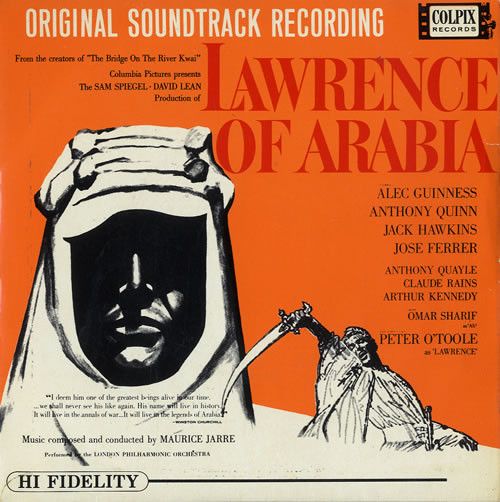
Inspired by listening to a recent episode, 'Film Scores I Have Loved Before' from one of my favorite movie-themed podcasts, 'Full Cast And Crew' I thought I'd throw my ten cents in regarding the best movie scores/soundtracks of all time. I've sort of cheated in some instances where I've doubled two soundtracks as one choice, but I'm sure no one cares. ^^
1. Lawrence Of Arabia (Maurice Jarre)
I remember first watching this most epic of films on a modest-sized television with my dad on VHS (bought from a WHSmith in Cheltenham) but somehow not even noticing or minding its greatly reduced format due to the most dramatic and all-encompassing movie score of all time by Maurice Jarre blasting through the TV speakers. The five-minute overture alone contains all you need to know about Jarre's genius in his shaping of the score, where the combination of wild and erratic pounding timpani meet with a rich romantic orchestral theme representing the noble Lawrence as well as the triumphant marching band style pageantry reminiscent of the British army all beautifully and compellingly contrasted expressing the cross-cultural tensions and affinities that the story itself on-screen will later reveal.
2. Chinatown (Jerry Goldsmith)
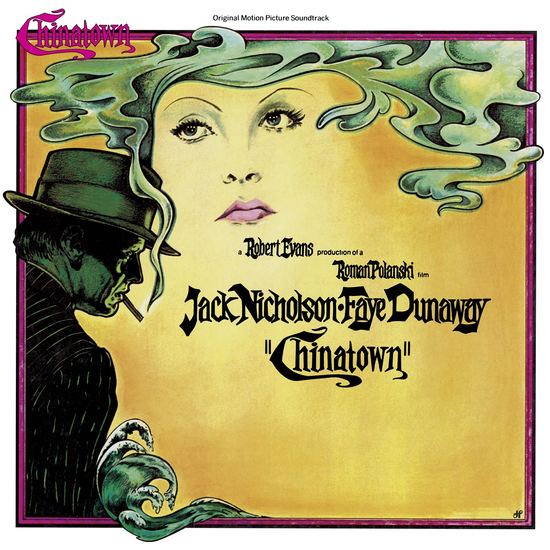
Plenty of people have said and written far more eloquent things about this "last minute" score than I would attempt to improve on, but I would just add that as soon as you hear that opening glissando on the harp, that sounds to me like a 1940s Chinoiserie vintage fabric of a theatre curtain being pulled slowly back that leads into that iconic sounding sultry trumpet melody you feel as if the entire history of Hollywood has been distilled into its purest essence in music form.
It's the sound of the ever-elusive shadowy mystery behind the superficial gloss of Los Angeles, and it's about as seductive as film music gets.
In a word ...
"It's Chinatown!"
3. The Long Goodbye (John Williams)
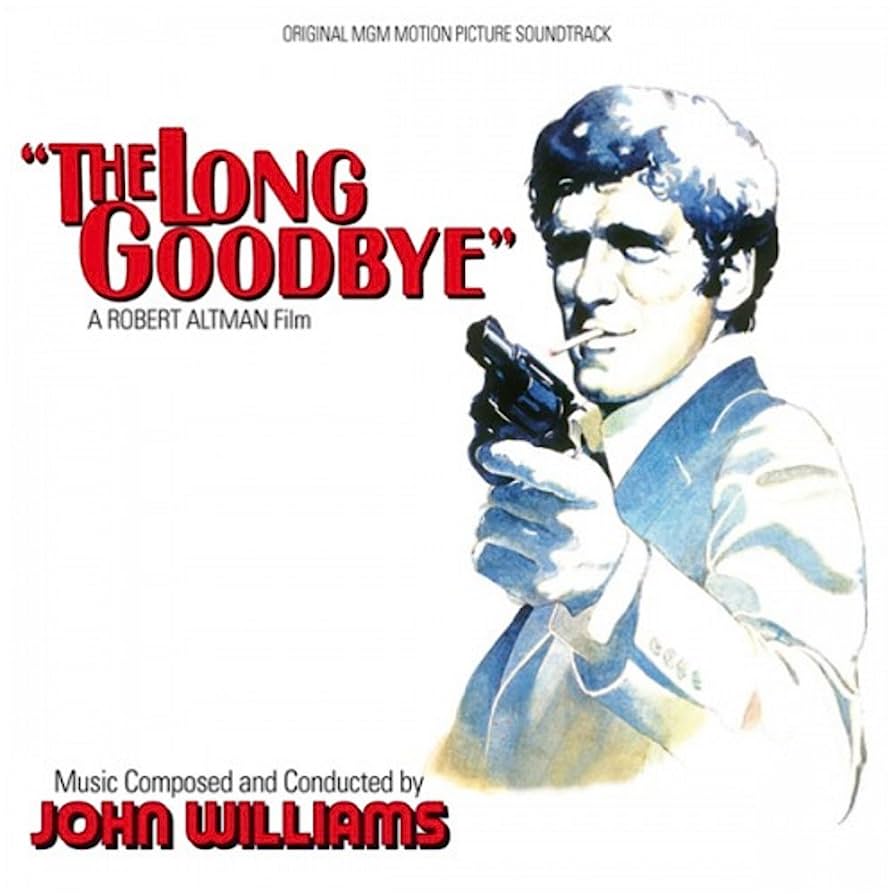
The genius of this particular score is listening out for how many times John Williams can reinvent one single theme for a multitude of different scenes over a nearly two-hour running time. The bluesy title dirge can be heard as a doorbell, through a supermarket tannoy, and a mariachi band, to name just a few of its many variations/iterations on a theme.
It is both a parody of the film noir soundtrack tropes and an incredibly inventive way to recycle a theme so that it becomes like an obsessive earworm that lives rent-free inside your head, just like how I imagine a criminal case does for detective Phillip Marlowe here played by Elliot Gould in Leigh Brackett and Robert Altman's ingenious 1970's reinvention of the character and the genre.
4. Once Upon A Time In America/Once Upon A Time In The West (Ennio Morricone)
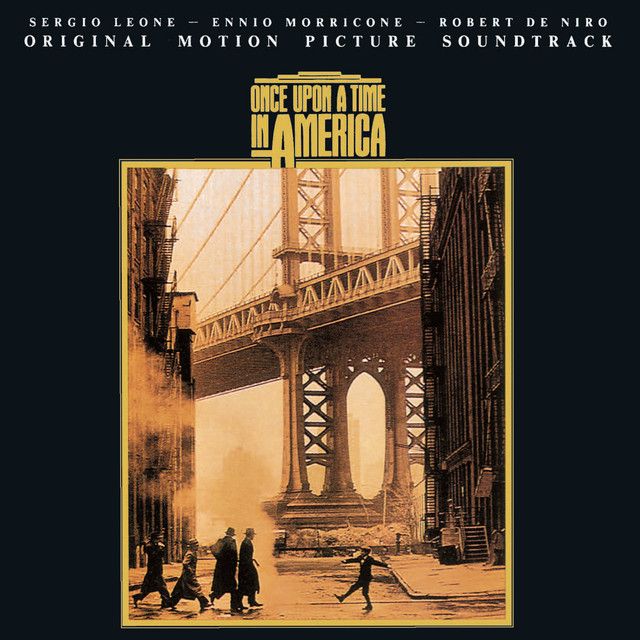
Although one is a Western and one is a gangster film, there is a shared sense in both of Morricone's iconic scores of deep melancholy, romance, and evocation of worlds that are fast becoming extinct.
In 'Once Upon A Time In America,' three themes stand out as exceptionally memorable, which are 1.) 'Poverty' deploying an old piano roll style theme that reflects the memory of the past expertly; 2.) 'Cockeye's Theme' which represents the death of youth via haunting panpipes and finally, 3.) 'Deborah's Theme' which is a ravishing romantic theme representing the elusive romantic figure of the protagonist Noodles's sexual and emotional desire/obsession.
Similarly, in 'Once Upon A Time In The West' there are three themes that stand out for their effectiveness in describing the three central characters and enhancing the story's themes and emotions, and they are 'Frank/Harmonica,' 'Cheyenne,' and 'Jill's Theme' which I believe represent the past, present and future of the west as a place or the Western overall as a genre.
'Frank/Harmonica' uses a dark menacing harmonica refrain to illustrate the sadistic brutality of the film's number one villain, Frank (Henry Fonda), and its symbolic resonance and soon-to-be signature motif for the character of Harmonica, played by Charles Bronson. In one of the most chilling scenes in the film, Frank forces a young boy (later to be known as Harmonica) to remain standing to keep his brother from hanging, all the while having a silver harmonica stuffed into his mouth while he desperately tries not to fall.
'Cheyenne,' describing Jason Robards bandit character, has a kind of a more dependable plodding theme like that of a pack saddle donkey wandering through the desert that perfectly matches Robard's tumbleweed character rolling from one town to the next, looking for any opportunity to make money. 'Jill's Theme' is an earlier relation to 'Deborah's Theme' from the other "Once Upon A Time" Leone movie, yet possessing perhaps a somewhat more expansive design as it represents not only Jill's ability to adapt to survive during the rapid industrialization of the old west but the enduring myths and culture of the old west itself enduring beyond the revolutionary changes soon to come.
With both of these soundtracks, you have a soundtrack to two historical chapters of America's history. The America of the Old West and the America of the first half of the 20th Century. In both scores, a vast amount of emotions, atmospheres, and culture are conveyed, and that is a testament to the genius of Ennio Morricone.
5. The Private Life Of Sherlock Holmes (Miklós Rózsa)
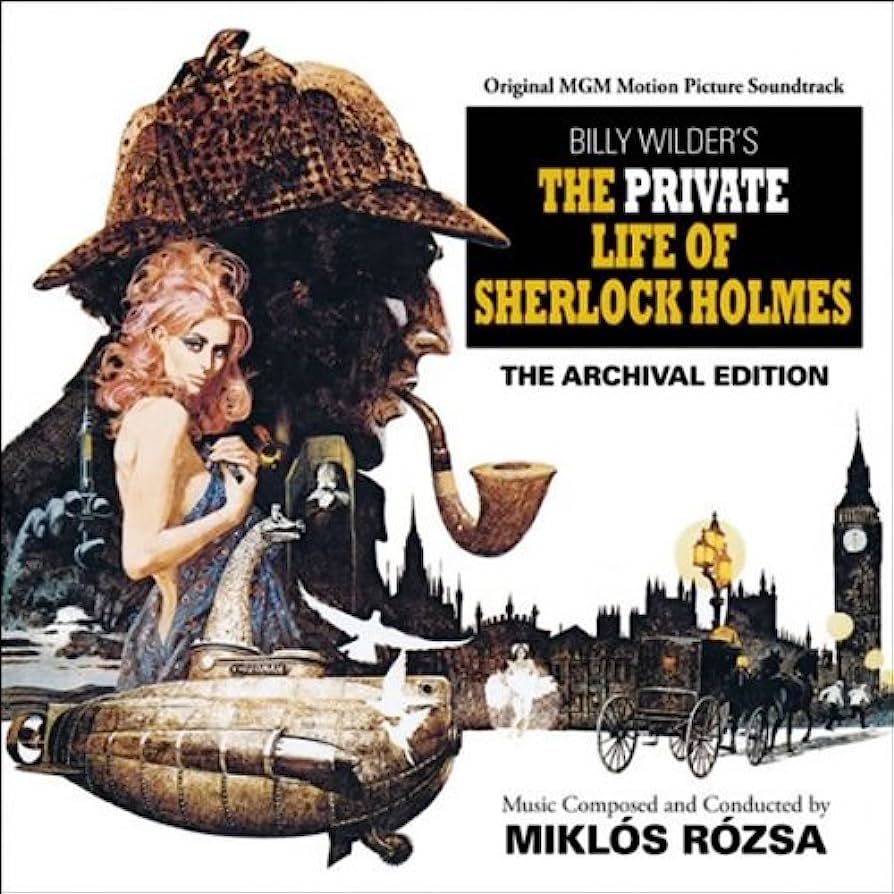
It was due to director Billy Wilder's long appreciation and love of composer Miklós Róza's violin concerto that the director began to realize that it could form the framework for a soundtrack to their Sherlock Holmes movie collaboration. It made further sense as Holmes's passion for violins is fleetingly described in numerous short stories by author Conan Doyle including 'The Adventure of the Cardboard Box' (1892), where Watson complains about Holmes talking "of nothing but violins, narrating with great exultation how he had purchased his own Stradivarius’. It was mainly through Holmes's many incarnations in radio, television, and cinema that the violin became an essential prop for his character, a possible thawing of the ice helping to reveal the beating heart beneath the more machine-like aspects of his persona. 'The Private Life Of Sherlock Holmes' is all about trying to crack the code of Holmes's enigma surrounding emotional psychology and relationships with women.
And so following Wilder and Róza's line of logic, one can see how the violin throughout 'The Private Life Of Sherlock Holmes' represents an internalization of Holmes's emotions and an extension of his soul while the more external elements of the film's story are more obviously and flamboyantly expressed. The film's narrative structure was even intended to follow that of a concerto, so again, there was a certain degree of symbiosis between the music that existed before the film was made and while it was being constructed. The final result proved it was destiny that Róza's music and Wilder's film should come together and form the greatest partnership since Holmes and Watson themselves.
6. Chimes At Midnight (Angelo Francesco Lavagnino)

Welles always spoke about his love of "Merry England," and in this rustic fiesta of old-world-sounding merriment combined with reflective pastoral melancholy, composer Lavagnino captures the bitter-sweet paradox of "Chimes At Midnight" where Prince Hal's innocence of youth spent with Falstaff at the Boar's Head is overtaken by his royal ambition to assume the throne.
There is something timeless about this score that I feel I can almost smell the sweet-scented dew on English summer grass from it. It captures an age of innocence being slowly lost to politics and war.
No wonder then that Welles, 'a romantic', felt this film would be his one artwork that would earn his place in heaven.
And in listening again to the soundtrack, I can only say the same for Lavagnino.
7. Avanti (Carlo Rustichelli)
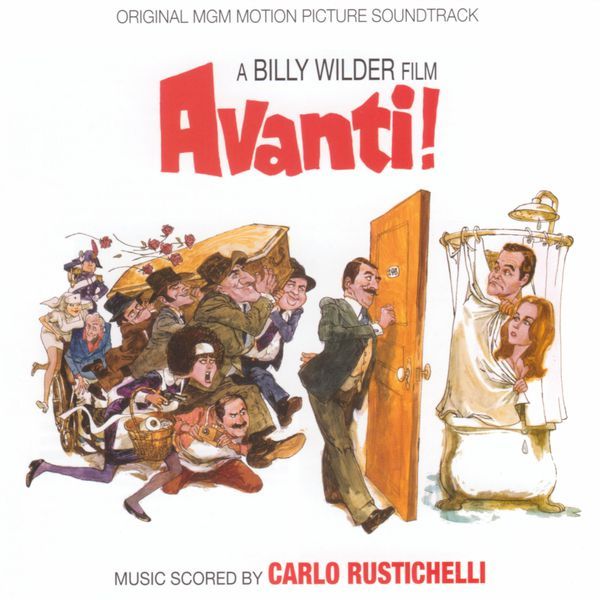
Carlo Rustichelli's score for Avanti is the musical equivalent of going on holiday where you can feel the sun, sea, and balmy Mediterranean air of Ischia, Italy, just as soon as you listen to the first few notes plucked on a mandolin. It's the soundtrack of a giant beach ball bouncing and tilting from one stretch of sand to the next. Although the film itself is a farce of sorts, it fits very much into Wilder's late-career return to his old-world European sensibility with such films as 'The Private Life Of Sherlock Holmes,' 'Fedora' and, of course, 'Avanti'. I find the director's reunion with his European past especially moving as Wilder lost a huge amount of his family in the concentration camps of Nazi Germany. Naturally, I don't expect anyone to watch 'Avanti' bringing that level of historical baggage to it, but it's something I have always appreciated about Wilder that he could still laugh at broad cultural stereotypes of Europe both lovingly and cruelly and see that they do bear some truth to the national character. He achieves this with his 'Sherlock Holmes' feature and in the way he characterizes both Italians in 'Avanti.'
Rustichelli's score is, of course, a parody of Italy and its various musical idioms, and so is in many ways itself a masterpiece of caricature and pastiche but one that never forgets to portray sincere emotion when needed as perfectly illustrated in 'The Morgue' cue where Jack Lemmon and Juliet Mills both visit the coffins of their recently deceased parents who have been an enjoying an affair every summer in Ischia up until a fatal car crash ends both their lives. Here, in this music, we have just the perfect amount of gentle tenderness needed without ever being maudlin or crass—just a perfectly pitched tone of emotion.
Bravo Carlo!
8. Psycho/Vertigo (Bernard Hermann)

Burrowing deep into the rabbit hole of our psyche is what the unsettling and striking opening theme of 'Vertigo' resembles in my interpretation of Hitchcock's most symbolic film, which appears to be about how the mind's subconscious leads how we relate to narrative, both real and imagined in life and art. With those descending neurotic violins, you feel as if you're falling endlessly into a void where no safety net will catch you. Searching for some melodic equilibrium to latch onto, the endlessly shifting title theme won't let you find any seeming resolution, and that's what makes Vertigo's music, as well as the film, so unforgettable.
'Psycho', by the same composer, although most famous for its stabbing motif in the iconic shower scene with the Stravinsky-like violins, succeeds even better in the quieter moments where the horror is less overt. Hermann masterfully manages to create a subtle underlying tension without having to do too much, and it keeps the audience constantly on edge, sensing there will be terrible things to come later in the story for the nervy protagonist Marion Crane (Janet Leigh).
Ultimately what both scores achieve is a perfect reflection of the films' interior and exterior function of scenes and knit them togetherly seamlessly. Once heard, neither can be forgotten, like the most vivid of dreams. Or nightmares.
9. Il Gattopardo (Nino Rota)
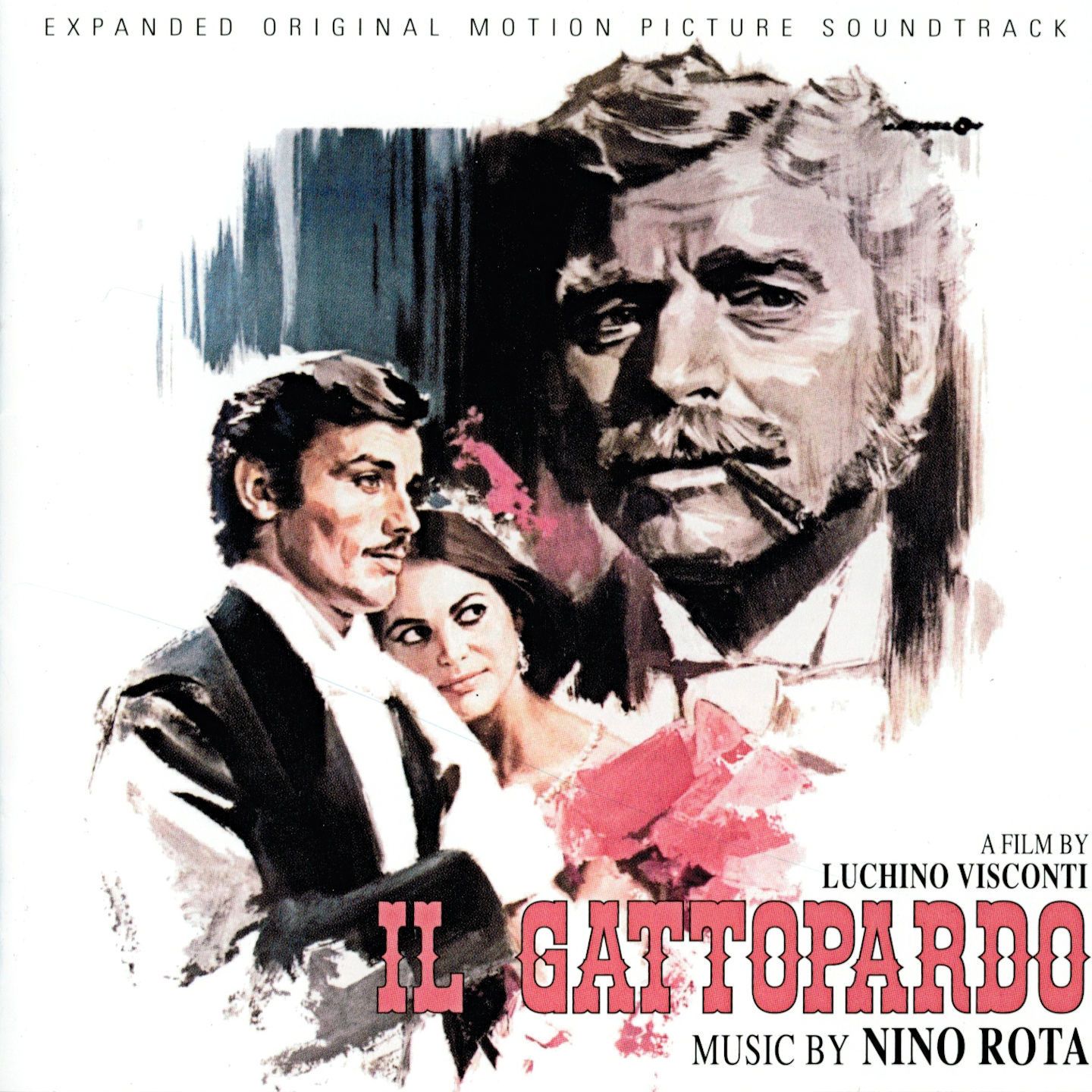
I've long made the case to certain cantankerous friends of mine that Visconti's Sicilian epic movie Il Gattoprado (The Leopard) works as a prequel to 'The Godfather' as it charts the seismic changes of Sicily before where the action of Vito Coreleone's childhood is charted in 'The Godfather Part 2.'
It's no coincidence then that Nino Rota was the composer for both scores and often appears to draw upon operatic and Italian folk music for inspiration in his music for all of those films.
Similarly to 'Chimes At Midnight' soundtrack, Rota's score for 'The Leopard' captures a rapidly changing world where the cultural and social battle lines are being radically re-drawn and where the past (aristocrats) and present (revolutionaries) of Sicily fight for how they might ultimately define the future of the country. Rota's score represents all of these many complex themes, including the romantic aspects of the story that are adapted from the original masterpiece novel by Giuseppe Tomasi di Lampedusa.
10. E.T. The Extra-Terrestrial (John Williams)
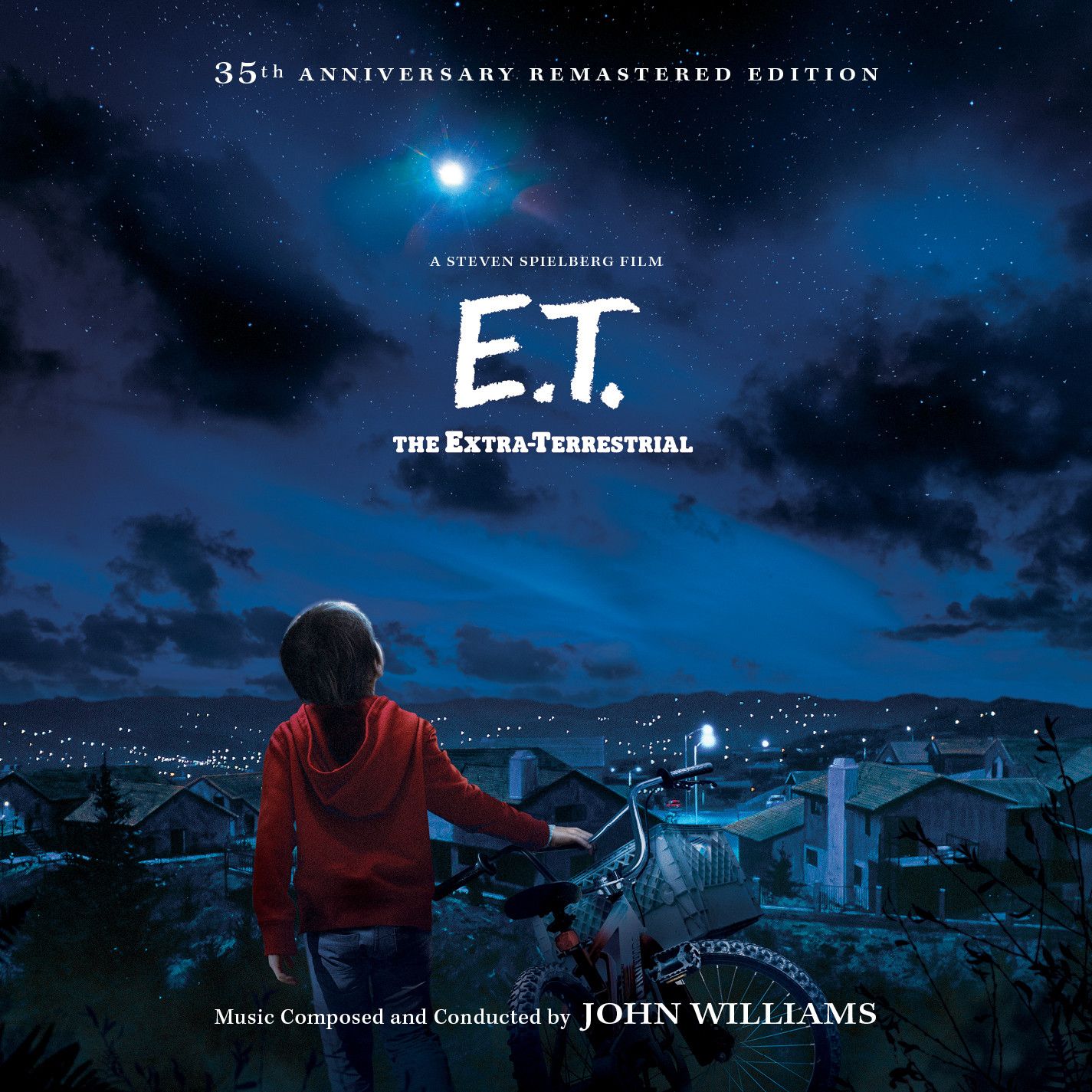
This one may be the most personal for me as E.T. was one of the first films I ever saw at the cinema. Who's to say what the full extent of its impact it made on my life in both opening my mind and heart up to the sound of classical music via cinema? I suspect it's a lot. For that reason alone, I believe this score deserves its place in my own personally selected top 10.
In many ways, Williams manages to include many elements of a symphony structure with his score for E.T. as well as a miniature piano concerto, plus a myriad of other musical formats to help tell this transcendent story about a boy and his pet alien. The marriage of visuals and music in this film is about as perfectly integrated as any in the history of film and perhaps no better demonstrated than in the final extended sequence, where all the musical motifs are brought together in an emotional and exhilarating climax as BMXers fly past the moon and through tall Redwoods and Douglas Firs in deep forests, and hugs with humous licking extra-terrestrials with glowing red hearts that finally depart in teapot-shaped spaceships are all featured.
Not to mention a rainbow!